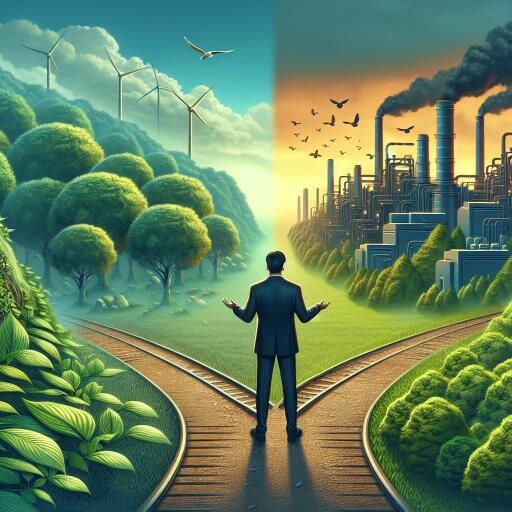
Industrial Ecology: Bridging the Gap Between Ecology and Sustainable Industry
In the intricate dance between the natural environment and industrial advancement, industrial ecology emerges as a pivotal intermediary, guiding the relationship toward sustainability and mutual benefit. At the core of this discourse is a nuanced understanding that ecosystems and industrial systems are not adversaries but partners in the quest for a sustainable future. This concept draws heavily on a reimagined framework initially proposed by Bruno Latour, where technology—encompassed here by industrial ecology—acts as a crucial mediator and negotiator in the dialogue between humanity and nature.
It is through the lens of standard ecology that we begin to decipher the complex interactions within natural environments, adopting ecosystem thinking to grasp the fundamental principles guiding these natural systems. Such perspectives are instrumental in unveiling the dynamics of transformation within both human and natural realms, particularly through concepts like panarchy and adaptive cycles. These cycles depict the continuous process of growth, accumulation, restructuring, and renewal that systems undergo, offering a metaphor for the interplay between societal needs and environmental resilience.
Yet, the leap from natural ecology to practical environmental management is not as straightforward as one might hope. The science of biology and ecology, in its purest form, presents challenges when directly applied to the mechanisms of environmental governance. This is where the concept of industrial ecology gains its significance, serving as a bridge over these complex waters. By introducing a classification that encompasses soft (conceptual and behavioral), practical (applied and pragmatic), and hard (technological and bio-physical) ecology, we can better appreciate the symbiotic relationship between ecological science and industrial application.
Envisioning a future where industrial systems mimic the self-sustaining cycles found in natural ecosystems, industrial ecology offers a model of coexistence that fosters sustainable production and consumption. This vision illustrates not only the possibility of a harmonious balance between industrial development and environmental stewardship but also the dynamic interaction that defines the relationship between society and nature.
The essence of industrial ecology lies in its capacity to integrate, innovate, and mediate. As industries and economies continue to evolve, the principles of industrial ecology provide a framework through which the seemingly conflicting objectives of economic development and environmental sustainability can be reconciled. Through the adoption of cyclic, adaptive practices mirroring those in nature, industries can achieve greater efficiency, reduce waste, and foster a more sustainable interaction with the natural world.
In summary, industrial ecology transcends the traditional boundaries of ecology and industry, positioning itself as a critical mediator and negotiator in the pursuit of sustainable industrial practices. By embracing the interconnectedness and interdependence of all systems, this progressive field offers a profound roadmap for achieving a balance that benefits both the planet and its populace. As we move forward, the principles of industrial ecology will increasingly inform and shape the strategies for sustainable development, cementing its role as an essential mediator in the dialogue between ecology and industrial sustainability.





Leave a Reply